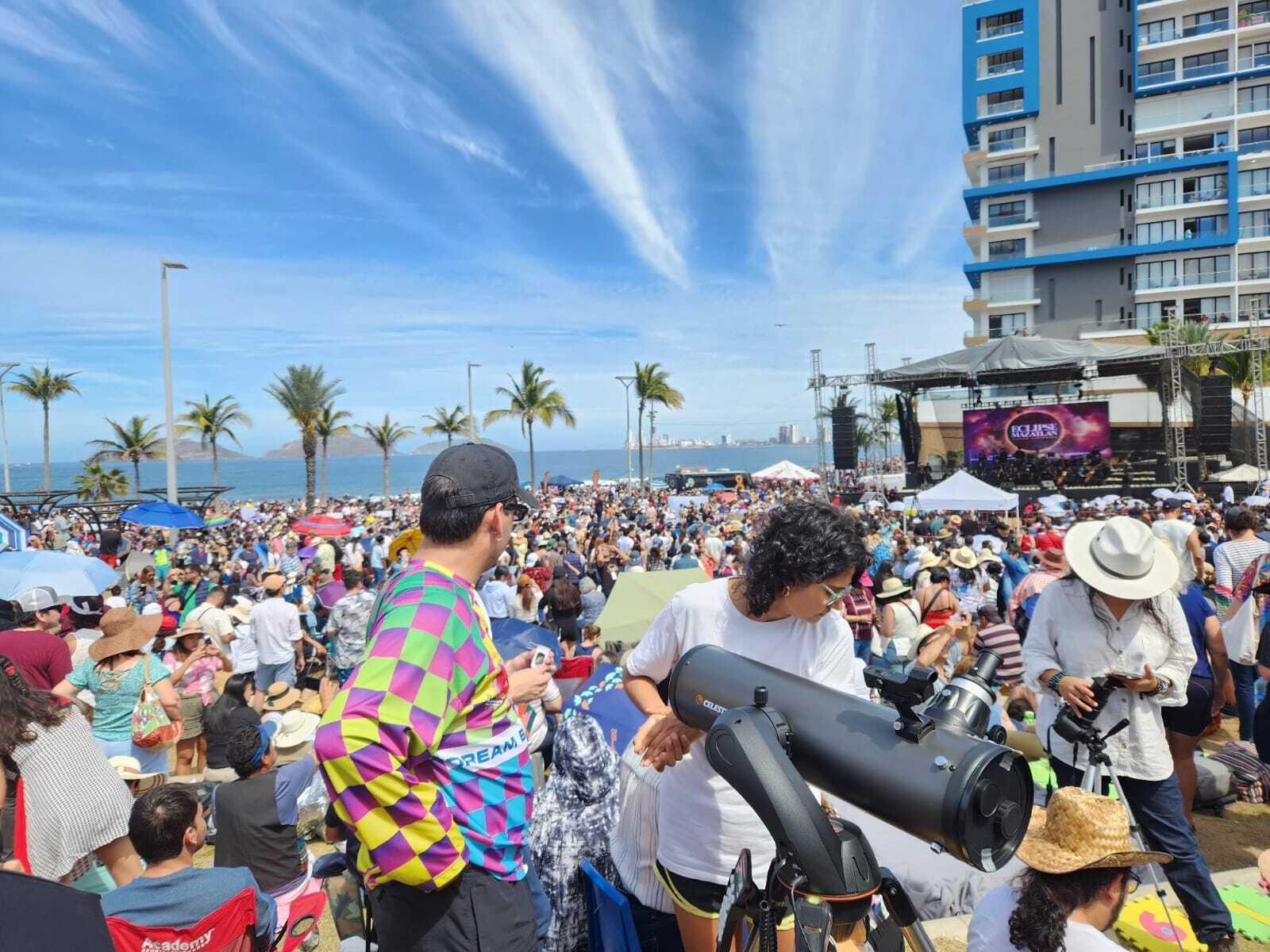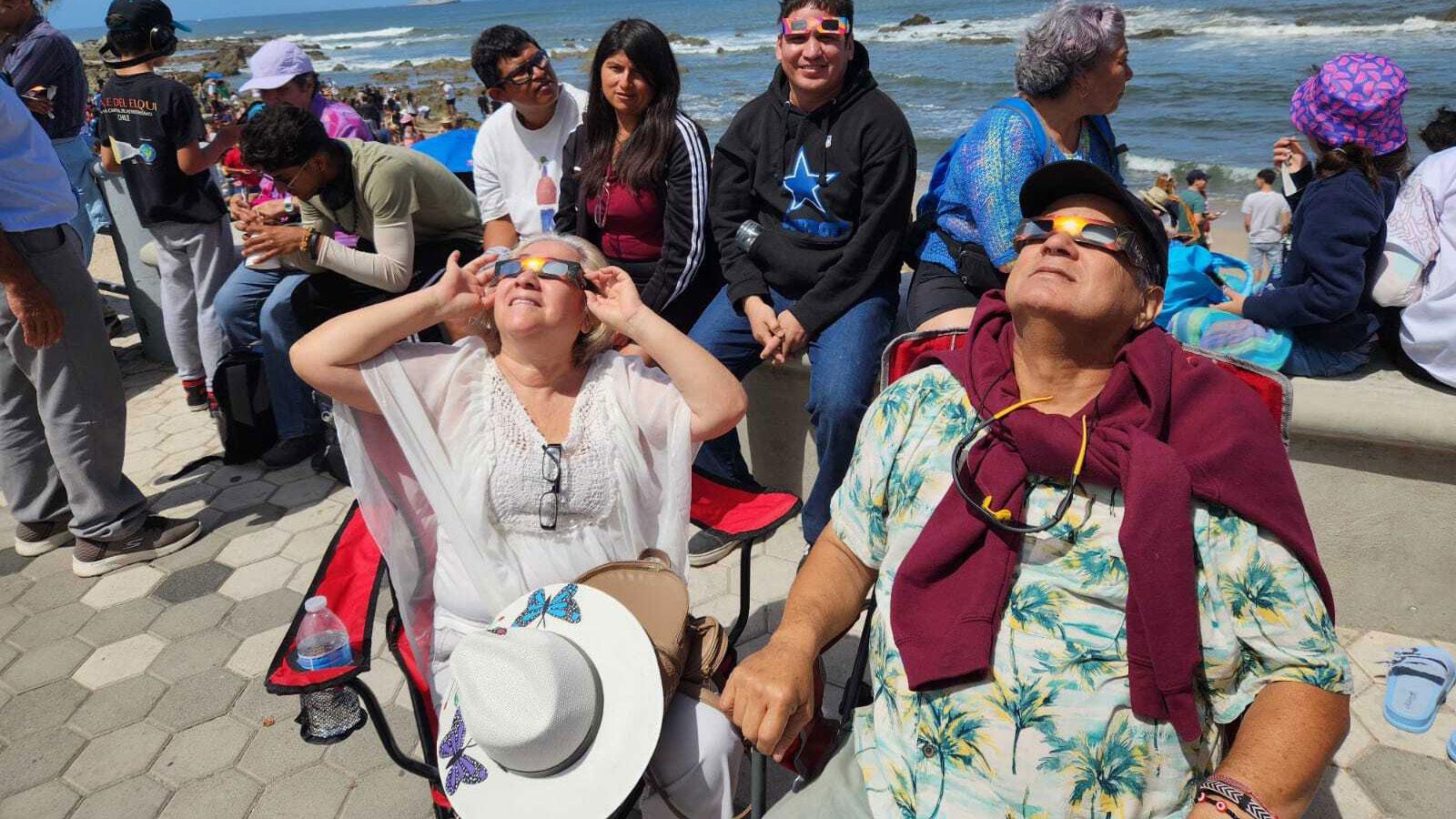Thousands of tourists flock to Mazatlán each year for its beautiful beaches, great food and party scene — mostly from within Mexico.

But thanks to the total eclipse on April 8, many international tourists are in town, including Brian Day, a staff scientist for NASA’s Solar System Exploration Research Institute.
Day is part of a delegation from NASA in Mazatlán who came to engage with the public and set up a livestream of the total solar eclipse for NASA TV.
On April 7, Mazatlán held a special astronomy conference organized by the mayor’s office and it was open to the public. Daniel Hernandez, with the Astronomical Society of Mazatlán, also attended the conference.
He said that over the last year, Mexican astronomers have been hosting public talks about the eclipse in schools and universities in Mazatlán and other cities. The goal is for more people to become interested in astronomy and science in general.

After the conference, the city threw a large public party in downtown Mazatlán, with a parade headed by the mayor and several beauty queens. The event attracted thousands of people who came for the entertainment including dancers and a live band playing banda, a form of traditional music from Mazatlán.
Scientists, astrophotographers, and eclipse-chasers booked their trips months or even years ago.
But domestic visitors like Julian Camilo were able to be more spontaneous. He and his wife, Mary Camilo, decided to come to Mazatlán just two days ago from Mexico City. They were lucky to find bus tickets. But they couldn’t find any accommodation, so they had to sleep in a tent at a public park.

According to the mayor, hotels are at capacity. The city is expecting about $70 million in revenue.
The last total eclipse experienced here was in 1991, and some still remember it.
Maria Estrada said it was an unforgettable experience. She convinced her family in Mexico City to come to Mazatlán for the eclipse. Her granddaughter, Amayranis, said the plane ride was the most exciting part so far, but she’s excited to view the eclipse with her special painted eclipse glasses.

But not everybody is excited about the eclipse.
Julio Camacho, who sells fresh oysters at the beach, said he stayed home today because his wife is pregnant and he believes watching the eclipse could harm the baby.
Ancient civilizations in Mexico believed eclipses were bites taken out of the moon or the sun. This idea became the Mexican belief that if a pregnant woman viewed an eclipse, a bite would be taken out of her baby’s face and cause facial deformities.
Hernandez, with the Astronomical Society of Mazatlán, said this is one of the strongest superstitions that still persist in Mexican culture.
Camacho, the oyster seller, said he and his wife will watch the eclipse on social media or TV.
